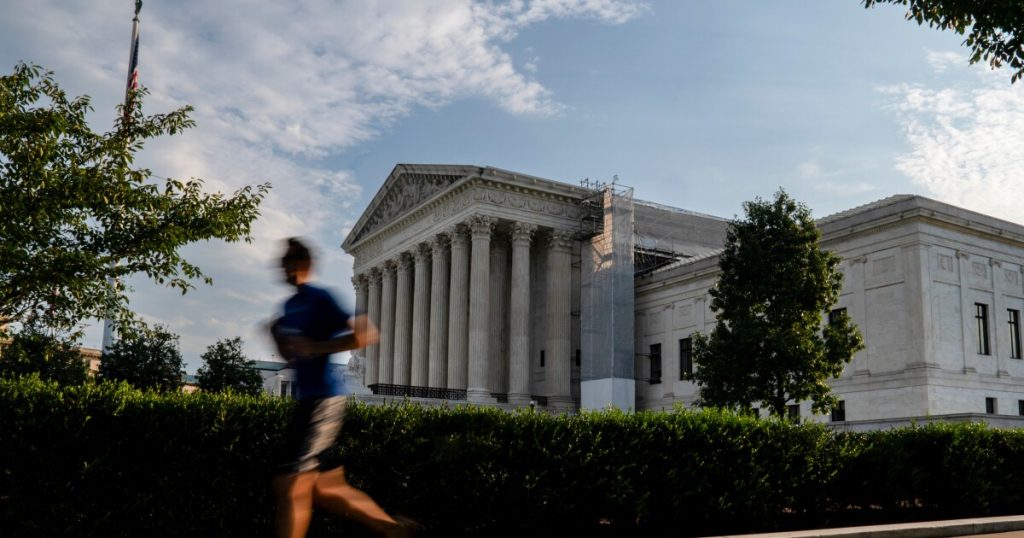The Conference of State Bank Supervisors Thursday urged the Office of the Comptroller of the Currency to revisit its current preemption regulations — issued in 2011 — arguing they defy both the law and a recent executive order from President Trump.
In the
“In the wake of the financial crisis, Congress sought to curtail the OCC’s longstanding pattern and practice of broadly preempting state consumer financial laws for national banks,” Milhorn wrote. “In particular, wholesale preemption of state mortgage laws had been a key contributor to the mortgage crisis that morphed into a global financial crisis.”
The National Bank Act — which established the national banking system and its regulator the OCC — provides the legal foundation for preemption in the national banking system, allowing federal law to override certain state regulations that interfere with the powers of nationally-chartered banks. Preemption is a legal concept grounded in the Supremacy Clause of the U.S. Constitution, which establishes that federal laws override conflicting state laws. The National Bank Act created the national banking system in the United States. The OCC has historically interpreted its preemption authority expansively, particularly with its 2004 rules which explicitly preempted state laws affecting national banks’ real estate lending, non-real estate lending and deposit-taking powers.
Milhorn argued the OCC’s broad preemption of state consumer protection laws — particularly through its 2011 rulemaking which upheld its broad power to preempt state laws — flouts Congress’s intent to rein in such powers after the financial crisis. In his letter to the agency, Milhorn argued “OCC ignored both the plain language and best reading of the National Bank Act,” when it issued the most recent rules in 2011.
Section 1044 of Dodd-Frank codified a standard for preemption in bank regulatory matters that was established in the Supreme Court’s
However, CSBS says the OCC sidestepped this “significantly interferes” requirement, preserving blanket preemption across more than 30 categories of state law and failing to meet such a legal threshold.
In the Cantero case heard by the Supreme Court, plaintiff and borrower Mr. Cantero contended that Bank of America should pay interest on a mortgage escrow account as mandated by New York law, which requires such accounts receive a minimum of 2% interest. However, BofA — a federally chartered bank — argued that the National Banking Act preempts such state requirements, asserting that federal law should supersede state law.
In Cantero, the lower courts differed in their interpretations of preemption. The 2nd Circuit applied a “control” test, suggesting state laws can’t control national banks’ activities, while the 9th Circuit used an “interference” test, determining that only state laws significantly hindering a national bank’s operations would be preempted. The Supreme Court found both standards flawed and remanded the cases back to the lower courts and demanded they apply a nuanced analysis based on historical precedents and the significant interference standard as referenced in the Dodd-Frank Act.
The Cantero decision signals that the OCC may need to significantly revise its preemption rules because it limits the agency’s ability to unilaterally declare that federal law overrides state banking regulations. Specifically, the Supreme Court rejected both the broad “control” and “interference” tests that lower courts had used and instead instructed them to apply a more historically grounded, case-by-case analysis — based on Barnett standard and codified in Dodd-Frank.
Together, CSBS echoes concerns from other banking experts that argue these rulings have cast doubt on the OCC’s currently broad preemption standards and signal more rigorous judicial scrutiny of when national banks can bypass state consumer protection laws. Legal experts
Beyond legality, CSBS said the current framework gives national banks an unfair advantage by insulating them from state-level regulation. Citing Trump’s executive order, CSBS argues the OCC’s continued use of broad preemption puts state banks at a disadvantage.
“The OCC provides national banks with a competitive advantage via broad preemption not authorized by the National Bank Act and not available to similarly situated state-chartered banks,” CSBS wrote. “Thus, the OCC’s preemption regulations also violate the directive in EO 14267 that ‘[f]ederal regulations should not predetermine economic winners and losers.'”
CSBS invokes two executive orders issued by President Trump directing agencies to review regulation. Executive Order 14219, focused on implementing the Administration’s Department of Governmental Efficiency, instructs agencies to revoke any regulations that exceed or conflict with their statutory authority. Executive Order 14267, aimed at eliminating “anti-competitive regulatory barriers,” requires agency heads to identify and revise rules that restrict competition — especially those that protect incumbent firms at the expense of new or smaller market participants.
CSBS urged the OCC to repeal its 2011 preemption rule and propose new regulations that align with statutory requirements and promote a level competitive playing field.
“The OCC’s preemption regulations must be rescinded to comply with [the executive orders] since they ignore both the plain language of, and Congressional intent embodied in, Section 5136C of the National Bank Act,” CSBS wrote. “The OCC’s preemption regulations are clearly unlawful, inconsistent with Supreme Court rulings, and contrary to the public interest.”

